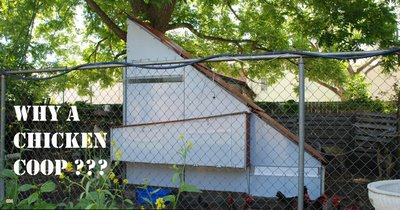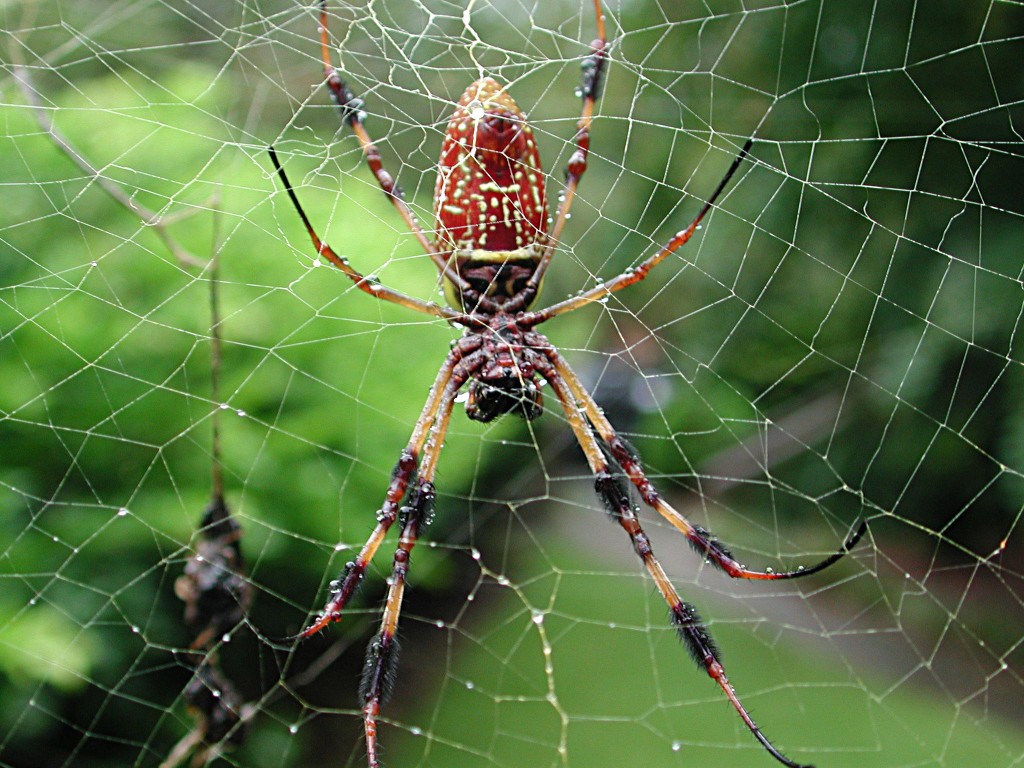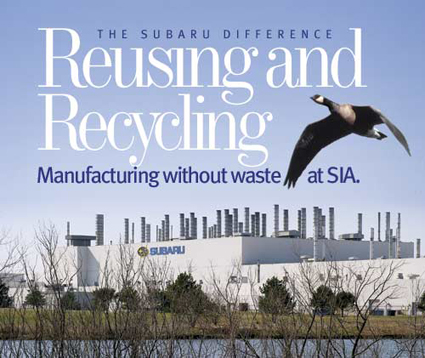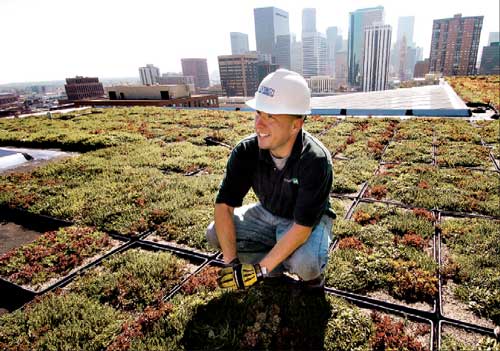Which came first, the chicken or the egg? In the case of St. Thomas 7-Hot Pepper Sauce, it was definitely the chicken. Without the chicken, there wouldn’t be the fertilizer to grow the hot peppers to make the hot sauce that the sent kids from the St. Thomas projects in New Orleans Lower Garden District off to college.
And without the chickens, Derek Hoeferlin and his architectural students from Washington University would not have had reason to take interest in this little community garden which has begun to harbor interest for it’s uniquely designed “urban chicken coop”, the story of its recovery post-Katrina and the sustainability recipe it holds for other communities across America.
In 1997 Noel Jones started a community garden on a little plot of land adjacent to the St. Thomas projects. The neighborhood kids watched Noel build the garden and gradually one by one became its most ardent laborers. Pre-Katrina there were up to 30 kids a year working regularly in the garden and voluntarily participating in a program that kept them mostly out of trouble and even sent some of them off to college.
St. Thomas 7-Hot Pepper sauce was an idea born out of this program when the USDA offered the group a grant to help them start a business that would create a revenue stream and keep the program alive. On a deadline of 8 months, the group came up with the recipe, bottling source, bottles, grower support network, packaging and every other detail necessary to meet the USDA requirements for selling a bottle of hot sauce.
Selling to farmer’s markets and a few retailers, “We could never keep up with the orders” Earl Antwine told me. “Even with the addition of the 90 lbs. of peppers from other farms on top of our 10lbs, the little burning fingers that seeded those peppers just couldn’t keep up with local demand for our hot sauce”. But the hot sauce was a big success until Katrina hit.
 Now the garden is struggling to get back up and running from its heyday pre-Katrina. “A couple of us stayed behind to feed the animals, but mostly everybody else had to leave”, said Earl. “The kids are just now beginning to move back so we are slowly getting our work force back. The chickens now have a new home to protect them and give us fresh eggs every day. And the garden is being slowly returned to a usable form”, said Antwine. Details such as funding to get the web site and phone line back up, are another story. The coop, which celebrated its one year anniversary today, withstood Hurrican Gustav and many other tropical storms of the last year so they are counting the victories as they come.
Now the garden is struggling to get back up and running from its heyday pre-Katrina. “A couple of us stayed behind to feed the animals, but mostly everybody else had to leave”, said Earl. “The kids are just now beginning to move back so we are slowly getting our work force back. The chickens now have a new home to protect them and give us fresh eggs every day. And the garden is being slowly returned to a usable form”, said Antwine. Details such as funding to get the web site and phone line back up, are another story. The coop, which celebrated its one year anniversary today, withstood Hurrican Gustav and many other tropical storms of the last year so they are counting the victories as they come.
Derek Hoeferlin works on many projects like God’s Vineyard, both micro and macro to move New Orleans towards a more sustainable future. The coop itself is an example of “incremental urbanism”, noted Hoeferlin. “Literally we were looking for a way to contribute to a sustainable garden from both a financial and gardening aspect”.
 One of the students who built the coop during his final year at Washington U., John Kleinschmidt, now a New Orleans resident, architect at Waggonner and Ball and mentor to one of the neighborhood kids working in the garden commented on the unforeseen challenges of building a low-budget, easily replicable, transportable coop that met the needs of chickens. “Chickens need to stay warm in the winter but we needed to make sure the coop would be well-ventilated, otherwise the methane emissions could make it explode. As a student of architecture it was certainly interesting to be studying up and building out a design to meet the needs of a chickens.I never knew there was so much to know!”
One of the students who built the coop during his final year at Washington U., John Kleinschmidt, now a New Orleans resident, architect at Waggonner and Ball and mentor to one of the neighborhood kids working in the garden commented on the unforeseen challenges of building a low-budget, easily replicable, transportable coop that met the needs of chickens. “Chickens need to stay warm in the winter but we needed to make sure the coop would be well-ventilated, otherwise the methane emissions could make it explode. As a student of architecture it was certainly interesting to be studying up and building out a design to meet the needs of a chickens.I never knew there was so much to know!”
Derek is on the member council of CITYbuild Consortium of Schools, a group organized in response to Hurricane Katrina. Additionally, this semester he is working on a much larger scale project that is tackling the water management system in New Orleans and paralleling a professional grassroots effort, Dutch Dialogues. “God’s Vineyard is just one of the many smaller good things happening. The challenge is how to leverage those against mitigating realities. We need to build on the positive momentum these efforts are creating and be smarter about how we implement a more sustainably designed New Orleans.”
If you are interested in helping God’s Vineyard get back on its feet, you can contact Earl Antwine at 504.875.8070. Noel passed away in March of this year so Earl has his hands full, but he’d be more than happy to hear from you.
image credit: top two photos Derek Hoeferlin, third photo: author







Where’s the link to get St. Thomas 7 hot pepper Sauce??
Where’s the link to get St. Thomas 7 hot pepper Sauce??